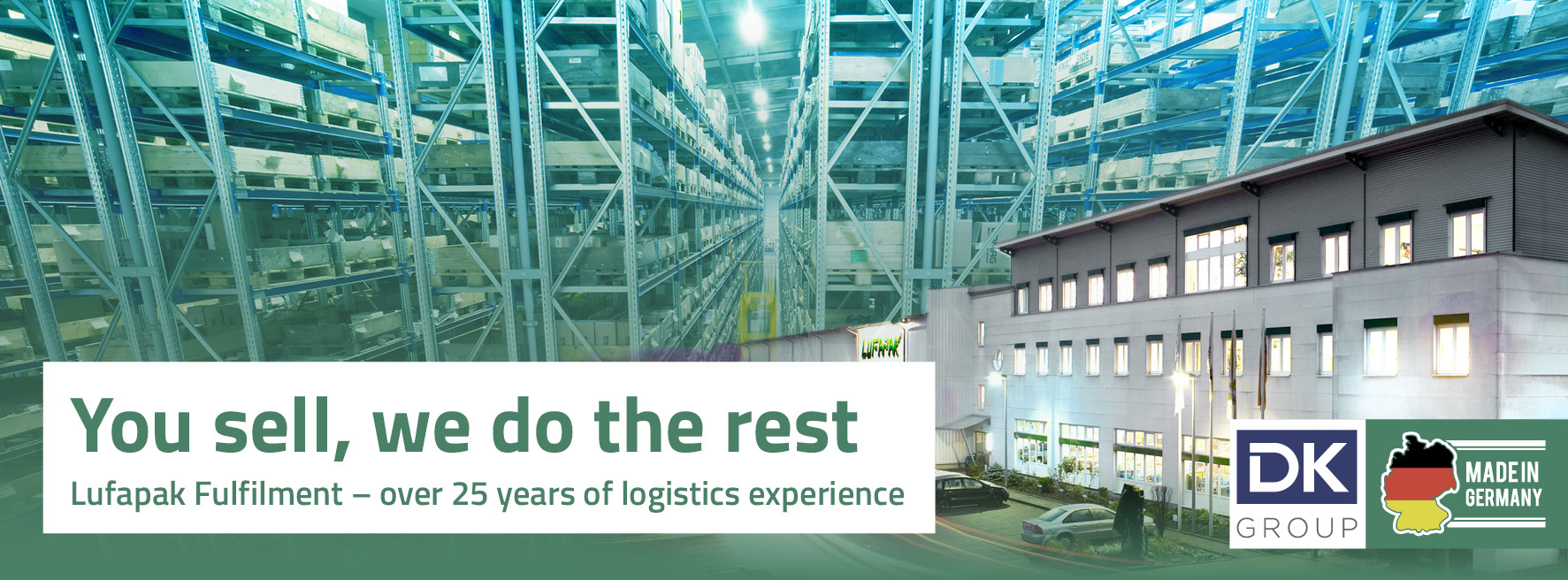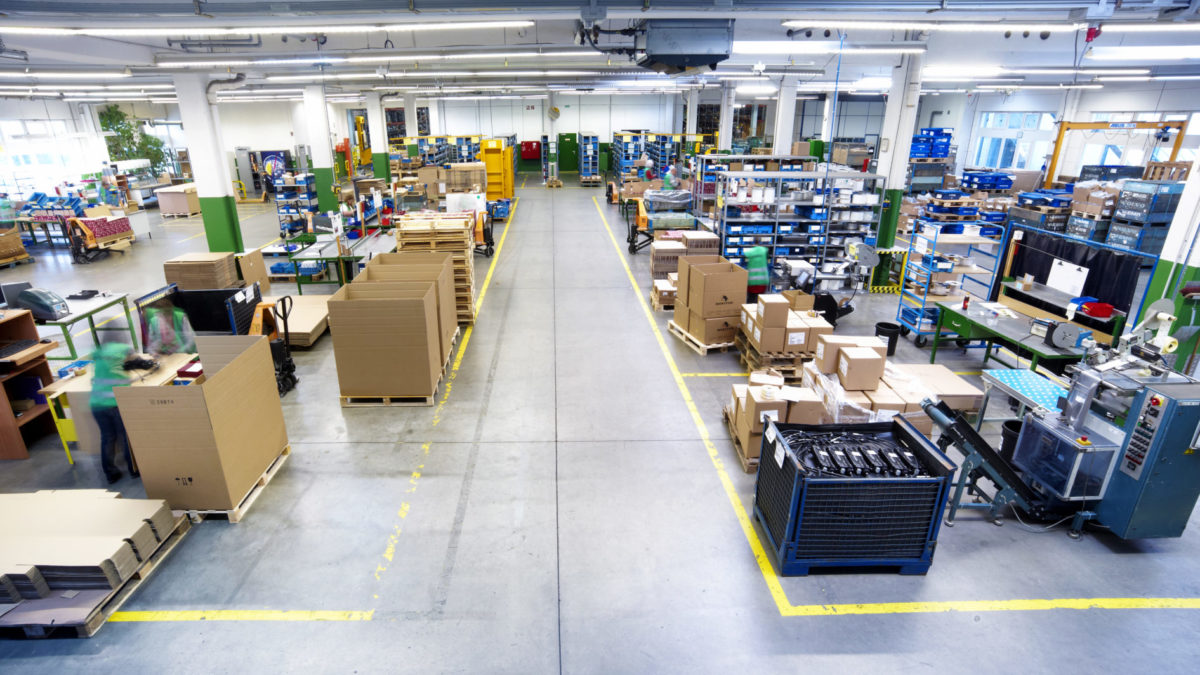sales@lufapak.de +49 2631/384-0 Contactform
The definition and role of logistics service providers
Logistics service providers are companies that specialize in planning, implementing and managing the efficient flow and storage of goods, services and information between the point of origin and the point of consumption to meet the needs of customers or businesses. They play a critical role in the global economy by ensuring that products move from manufacturer to consumer in a timely, cost-effective and safe manner.
Importance for the global economy
- Facilitating trade: Logistics service providers enable international trade by building a bridge between producers and markets in different parts of the world.
- Increasing efficiency: They improve efficiency in supply chains by optimizing transport routes, warehousing and inventory management.
- Reducing costs: Through economies of scale and expertise, logistics service providers can reduce costs, which brings economic benefits for small and medium-sized companies in particular.
- Promoting innovation: They drive technological innovation in order to be able to deliver faster, more transparently and more reliably, for example by using tracking systems or automated warehouses.
- Adaptability and flexibility: In an ever-changing global economy, logistics service providers can react quickly to market fluctuations and thus strengthen supply chain resilience.
- Sustainability: In light of increasing environmental awareness, logistics service providers are contributing to the development and implementation of green logistics, for example by striving to reduce emissions.
By integrating various services such as transportation, warehousing, packaging, customs clearance, etc., logistics service providers help companies to focus on their core competencies while managing the complex process of goods distribution. Their role is becoming increasingly important as markets become more global and supply chains more complex.
The broad spectrum of logistics services
Logistics service providers offer a wide range of services that go far beyond pure transportation from A to B. Here is a detailed overview of the wide range of services that can be utilized:
- Transport:
- Land transportation: Truck transport, rail freight.
- Air freight: Fast transportation over long distances.
- Sea freight: Cost-effective transportation of large quantities over long distances.
- Courier, express and parcel services (CEP): For urgent shipments.
- Intermodal and multimodal transportation: Combination of different modes of transport.
- Storage:
- Warehousing: Provision and management of storage space.
- Inventory management: Monitoring and control of warehouse stocks.
- Distribution centers: Efficient distribution of goods to end customers or retailers.
- Value-added services:
- Packaging: Professional product packaging for safe transportation and storage.
- Assembly work: Assembling products before shipping.
- Labeling and pricing: Preparing products for sale.
- Quality control: Ensuring product standards are met.
- Customs services:
- Customs clearance: Support with documentation and procedures.
- Advice on trade regulations: Assistance with international trade laws and regulations.
- IT services:
- Tracking and tracing: real-time monitoring of shipments.
- Supply chain management software: optimization of the supply chain through IT solutions.
- Project logistics:
- Large-scale project logistics: planning and handling of large-scale projects, e.g. in plant construction.
- Heavy load and special transports: Transport for unusual sizes and weights.
- Environmentally friendly logistics services:
- Green logistics: measures to reduce the ecological footprint.
- Reverse logistics: return and recycling of products and packaging.
- Consulting and management:
- Supply chain consulting: Advice on improving the supply chain.
- Risk management: analysis and minimization of risks in the supply chain.
- Specialized services:
- Cold chain logistics: transportation and storage of temperature-sensitive goods.
- Pharmaceutical logistics: Specialized logistics for pharmaceutical products.
- Hazardous goods logistics: Handling of hazardous substances and goods.
Classification of logistics services
Logistics services can be divided into four basic categories, which are identified by the abbreviations “1PL” to “4PL”. Each level represents an extended range of services and responsibilities within the supply chain:
1PL (First Party Logistics):

- Definition: Manufacturers or retailers who transport their own goods without using external service providers.
- Services: Own transportation of goods, either with the company’s own means of transport or by renting.
2PL (Second Party Logistics):
- Definition: Transportation companies or freight forwarders that offer special transportation services.
- Services: Includes direct transportation services such as ocean freight, air freight, rail transportation and trucking.
3PL (Third Party Logistics):
- Definition: Service providers who, in addition to transportation, also offer other logistics services such as warehousing, inventory management and value-added services.
- Services:
- Integrated warehousing and transportation services.
- Inventory and shipping management.
- Packaging, cross-docking, labeling and other value-added services.
- Customs clearance and compliance management.
4PL (Fourth Party Logistics) oder Lead Logistics Provider (LLP):
- Definition: Providers that take over the complete management of the supply chain and act as an integrator between the customer and other logistics services.
- Services:
- Strategic planning and execution of the entire supply chain.
- Coordination and monitoring of 3PLs and other supply chain partners.
- Leveraging technology for advanced analytics and process optimization.
- Often offering consulting services for long-term supply chain improvement and development.
Some industry experts also speak of 5PL (Fifth Party Logistics), which specializes in optimizing networks of multiple supply chains, usually by using e-business and e-solutions to unite different 3PL and 4PL providers.
Requirements for modern logistics service providers
The demands placed on modern logistics service providers are complex and have been significantly shaped by technological progress and rising customer expectations in recent years. The most important expectations include
Speed: In today’s fast-paced business world, speed is critical to competitiveness. Customers expect logistics services to provide efficient transport and delivery times, which often includes just-in-time deliveries to minimize storage costs and maximize throughput.
Quality: The quality of logistics processes contributes significantly to customer satisfaction. This includes not only a low risk of damage to goods during transportation and storage, but also correct, reliable delivery of the right products in the right quantity at the right time.
IT integration: Modern logistics is closely linked to information technology. Warehouse management systems (WMS) and transport management systems (TMS), as well as big data and analytics technologies, play a key role. They enable improved traceability of shipments (tracking & tracing) and optimized supply chain processes.
Flexibility: Due to constantly changing market requirements, logistics service providers must be able to adapt their services flexibly. This can mean being able to react quickly to seasonal fluctuations, changes in delivery quantities or sudden changes in the supply chain.
Technological equipment and infrastructure: A modern logistics service must have adequate storage capacity and sufficient technical equipment to handle different types of goods efficiently. This includes modern building technology and the provision of the necessary IT infrastructure for the optimal movement and storage of goods.
Sustainability: More and more customers are attaching importance to ecologically sustainable logistics solutions. This includes optimizing routes to reduce emissions, using environmentally friendly packaging and generally contributing to a green supply chain.
Additional value-added services: In addition to pure transportation and storage, customers often expect services such as packing, order picking or product assembly by the logistics service, which should increase efficiency and simplify parallel processes.
These requirements are also reflected in the contract duration and turnover, which typically include both long-term commitments and significant transaction volumes. The aim here is for the client and logistics service provider to work together as partners in order to ensure continuous optimization and adaptation to the dynamic development of the company.
Advantages and challenges of outsourcing logistics services
Outsourcing logistics services is a strategic decision that many companies make due to various potential benefits, but it also faces challenges. Here is an analysis of the pros and cons associated with outsourcing logistics tasks to external service providers:
Advantages of outsourcing logistics services
Scalability: companies can scale their warehouse capacity and logistics processes via external providers, allowing them to adapt to the changing needs of the market without having to invest in their own infrastructure.
Cost savings: By using external logistics service providers, a company can make savings as it does not have to maintain its own storage and transportation capacity. Fixed costs can thus be converted into variable costs.
Access to expertise and technology: Outsourcing enables companies to benefit from the expertise and technological resources of the service provider without having to invest in their development and maintenance themselves.
Focus on core competencies: By outsourcing logistics processes, companies can concentrate on their core business and free up resources for the development of new products or services.
Increased efficiency: Specialized logistics services are often able to design processes more efficiently than the outsourcing company itself, resulting in faster turnaround times and better customer service.
Risk mitigation: External providers can help reduce risks associated with warehousing and transportation by taking responsibility for insurance and compliance.
Challenges when outsourcing logistics services
Dependence on the service provider: Working with a logistics partner leads to a certain degree of dependency. Problems such as quality deficiencies, delivery delays or financial difficulties at the service provider can have a direct impact on the outsourcing company.
Loss of control: A certain degree of control over the logistics processes is relinquished, which can lead to concerns about diligence and prioritization by the logistics service provider.
Communication difficulties: Effective communication is critical, but with outsourcing it can be more difficult to address and resolve issues in a timely manner, especially if the service provider operates in a different time or cultural space.
Security concerns: Sharing data and information with third parties carries the risk of data breaches and the unwanted sharing of trade secrets.
Integration of systems: The logistics provider’s IT systems need to interact smoothly with those of the company, which can be challenging.
Contract management: The need to develop effective contracts and establish key performance indicators (KPIs) requires careful planning and management skills.
Adaptability: Rapid changes in business strategy or the market can require agile adaptation of logistics, which may not be as quick to implement with an external service provider as internally.
Outsourcing logistics services can offer many benefits, but it is important that companies carefully consider the potential challenges and through careful selection of the service provider, ensure clear agreements and regular communication.
Future trends in the logistics services industry
The logistics services industry is characterized by dynamic change and the continuous integration of advanced technologies and sustainable practices. Some of the key future trends that are likely to shape the industry in the coming years include:
Circular economy
The focus on sustainability and environmental protection is leading to the development of processes aimed at the circular economy. This includes the creation of logistics systems that use resources efficiently and reduce waste by enabling products to be returned to the economic cycle.
Digital business models
Digitalization is changing the way logistics tasks are carried out. New business models are increasingly based on digital platforms that facilitate communication between suppliers, service providers and customers and offer transparency across the entire supply chain.
Networking the supply chain
The digital networking of all participants in the supply chain will continue to gain in importance. This involves the use of IoT technologies that make it possible to collect and exchange information in real time in order to achieve improved coordination and efficiency.
Edge computing for big data
With the increase in data generated by networked devices in logistics, edge computing is becoming increasingly important. Decentralized processing of data directly at the point of origin can reduce latency times and enable quick decisions in the logistics process.
Diversification of supply chains
In response to crises such as pandemics and geopolitical tensions, companies will strive to make their supply chains more resilient. This includes diversifying supply sources and developing risk management strategies.
Decarbonization
The drive to reduce CO2 emissions and achieve climate targets will continue to play a central role. Investments in alternative drives, such as electric or hydrogen technology for means of transportation, are part of this trend.
Respect for human rights
In global logistics operations, respect for human rights along the value chain is also coming into focus. Companies must ensure that their supply chains comply with ethical standards and that there are no human rights violations.
Influence of digitalization on work
As digitalization progresses, working conditions and requirements within the logistics sector are also changing. Automation is taking over routine tasks, while employees need to learn new skills to keep pace with new technologies.
These trends illustrate that the logistics services industry requires a high degree of adaptability and willingness to innovate in order to keep pace with rapidly changing requirements and gain a competitive edge. Companies must be prepared to invest in new technologies, adapt their business models accordingly and integrate sustainability and ethical principles into their strategies.
Contact us now and get advice


